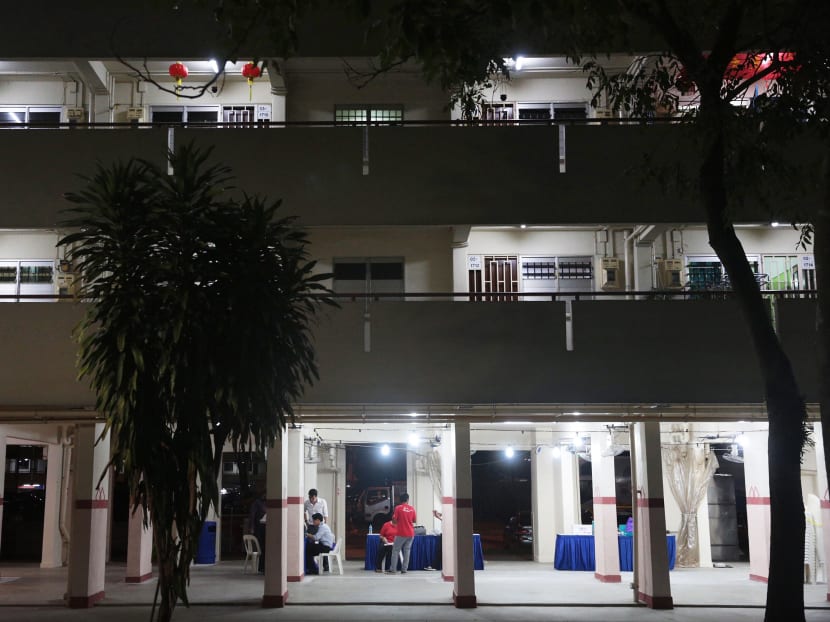TB cases in AMK could stem from 2012 Parklane cluster
SINGAPORE — The cluster of six tuberculosis (TB) cases at a HDB block in Ang Mo Kio could have its roots in a similar episode that implicated three cybercafes at Parklane shopping mall in 2012, it has emerged.

Tuberculosis screening stations being set up yesterday at the void deck of Block 203 Ang Mo Kio Avenue 3, where a cluster of six multi-drug-resistant TB cases has emerged. Residents of the block have been offered free screening as a precautionary measure, from 9am to 9pm until Sunday. Photo: Jason Quah
SINGAPORE — The cluster of six tuberculosis (TB) cases at a HDB block in Ang Mo Kio could have its roots in a similar episode that implicated three cybercafes at Parklane shopping mall in 2012, it has emerged.
The first case in the current cluster was among the six people who came down with TB back then, his housemate told TODAY.
Speaking on condition of anonymity, the 32-year-old man said his friend, who was living with him and his mother then, fell ill with TB in February 2012.
The man said he got TB three months later, and his 75-year-old mother too, in October last year. She is among the three individuals still undergoing treatment.
The other three residents of the same block were diagnosed in April 2014, October last year and last month, said the Health Ministry yesterday, which described the localised cluster as a “highly unusual” one.
The man, who works at an IT shop, said that after the 2012 Parklane cluster was discovered, he was among the 112 family members, friends and close contacts of the patients who were called up for screening. Five of the six patients then had been to at least one of the three cybercafes there; the last was a family member.
In May that year, he was hospitalised for a month for multi-drug-resistant TB (MDRTB) and put on medication for 18 months subsequently before he was declared “clear”, he said.
His mother was also diagnosed with latent TB then, which refers to TB in its asymptomatic, non-infectious state. She was only diagnosed with MDRTB in October last year and has been undergoing treatment in the Communicable Disease Centre since then, he added.
Speaking to TODAY over the phone on Thursday (June 16), the man said his friend’s “negligence” in taking medication may have been what caused the disease to spread to him and his mother.
“(My friend) did not take the situation seriously, did not care to take medication ... His condition worsened and he was later admitted to the hospital for a year,” he said. His friend moved out about one-and-a-half years ago.
Asked how he felt when he was tested positive for the disease, he said: “I knew I was probably infected ... But when I was told it had become active MDRTB, I felt angry at (my friend), I scolded him ... His negligence can be deadly.”
He added that the medication he had to take caused side effects that made him quit his previous job, leaving him unemployed for a year.
“The medication made me feel like a zombie. I was weak, lethargic and depressed,” he said. He now helps to repair computers in a firm close to his home.
The man — the youngest of six children and the only one living with his mother — still attends yearly reviews at Tan Tock Seng Hospital, but has not relapsed since.
His mother will likely be discharged sometime next year, he said. Her spirits have improved but she remains bedridden, he added.
He has encouraged his neighbours to get tested for TB at the screenings that will be provided at the foot of the block until Sunday, as a precautionary measure.
“I told them they must go for the blood test downstairs ... I hope (they have not been infected),” he said. “But this disease is hard to prevent.”






